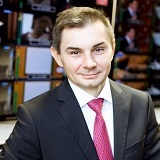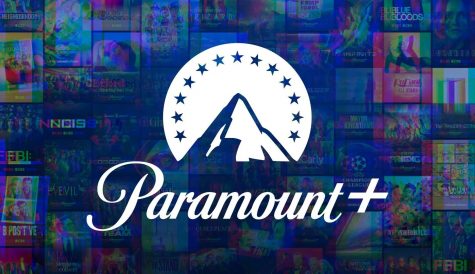
After more than 40 years of operation, DTVE is closing its doors and our website will no longer be updated daily. Thank you for all of your support.
Tricolor TV outlines Russian pay TV principles
Large basic TV packages and the ability to upsell customers will help sustain the pay TV industry in Russia, where a high proportion of viewing is devoted to free channels, according to market leader Tricolor TV.
Speaking at the GS Summit in Saint Petersburg, Mikhail Goryachev, content director for Russian DTH provider Tricolor, said that almost 50% of TV viewing in Russia goes on free-to-air channels like Channel One, compared to just 10% free-to-air viewing in Germany, and that as such the firm is “trying to find new ways to develop.”
Goryachev said that offering a basic package of channels, including Russia’s free terrestrial networks, for a set free trial period would increase its pay TV subscriber base and drive ARPU in the long-run, with viewers able to later sign up for extra services.
“When a person buys the latest model of the iPhone, he can either use all the applications that are installed in the device, or he can use only calls and SMS. That is how it works in pay TV,” he said. “We offer our subscribers a basic package of services and afterwards we give them the idea of how they could work with that package and how to increase that package with extra services.”
Based on research, Goryachev said that pay TV providers should aim to offer between 200 to 220 TV channels in their basic package: “If there are fewer channels it is harder for a pay TV operator to give a huge variety of the genres, themes and subjects that could possibly interest a subscriber.”
Any more channels than this, he claimed, would also have little impact on the attractiveness of the offer.
“According to some research, four to five channels of each genre is really enough to cater for all the audiences in all the subscribers’ interests,” said Goryachev, claiming there should be a mix of basic channels including national and regional, sports, music and science fiction stations as well as radio and other extra services.
“Television should be democratic and accessible – there isn’t and cannot be an operator for wealthy people or for underprivileged ones. Television is not a luxury service and we must keep it in mind,” said Goryachev.
He also stressed the importance of keeping ahead of the lastest technological trends, claiming that Tricolor was “ahead of its time” when it added 20 HD channels to its basic package two and a half years ago.
Tricolor has new turned its focus to Ultra HD, launching a pilot 4K channel for subscribers at no extra charge last month.
“There are only a few [Ultra HD] TV sets in Russia nowadays, but Tricolor has already launched a new 4K channel, so this is why we’re constantly telling everyone to be ahead of time and to oversee future needs of the subscribers,” said Goryachev.
In terms of premium, or extra channel packages, the Tricolor executive said that the best option was to agree deals with major Western channel operators, such as Fox, Universal and Sony. Goryachev added that while the audience for sports and movie packages remains “quite limited, the willingness of those subscribers to watch that type of content is very strong.”



